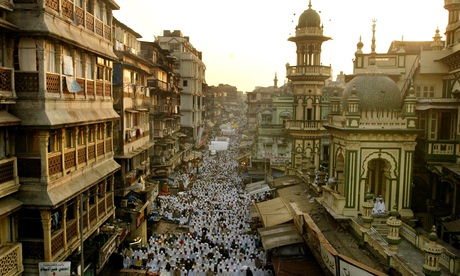
In 2008 Bart Moore-Gilbert was a middle-aged academic teaching post-colonial studies at Goldsmiths College, London. His interest was pricked when he received an unsolicited email asking about his much-loved father Bill's time in the Indian police during the second world war. An Indian professor researching nationalist movements in the subcontinent in the 1940s had come across details of Bill's work in counterinsurgency, and wondered if Moore-Gilbert had any family papers.
No, but then he didn't know much about his father's career. Debonair Bill wasn't the kind of man to look back on such things. He later became a senior game warden in what used to be called Tanganyika, now Tanzania, the east African paradise where Moore-Gilbert grew up. Since he himself had never been to India, he resolved to go there and find out for himself.
What turns into a skilfully evoked quest for the truth about a contested era in both imperial and family history opens with young Bart at boarding school in England. He misses the warmth of Africa and feels out of place in a dank country where he hasn't watched the same TV programmes as his fellow pupils. Such scenes are a feature of colonial memoirs and stories, including Rudyard Kipling's "Baa Baa, Black Sheep". Moore-Gilbert's is given added poignancy when he is summoned from his dormitory, which he is regaling with a tale of a leopard's attack in the bush, and taken to the headmaster to be told, in achingly blustering fashion, that his father has been killed in a plane crash. Cue for a sense of dislocation and loss.
The adult Moore-Gilbert decided to visit Mumbai over Christmas 2008 when, by a twist of fate, the city had just been devastated by a series of bombings. It would be easy to muck up an account of one's first impressions of the subcontinent, but Moore-Gilbert captures its vibrancy and unpredictability as he makes his way through archives and libraries, and further afield by tuk-tuk, train and bus. At Mumbai's Elphinstone Archives, he begins to piece together details of his father's service in Satara, southern Maharashtra – the centre of the Prati Sarkar or parallel government that sprang up at a time when British rule was particularly stretched by the wartime advances of the Japanese. His efforts to extract meaningful papers here and elsewhere are met with bureaucratic obfuscation, which is intensified because India is on terrorist alert and ill-disposed towards contentious colonial history.
Moore-Gilbert is badly thrown when he discovers an account that indicts his father for ruthlessness and violence, although this allows him to explore various nuances about the reality of terrorism (were Indian nationalists in the Raj terrorists or freedom fighters?), along with more mainstream ruminations on the nature of evidence.
He might have given up, if he hadn't chanced on a fellow researcher, Rajeev Divekar, one of several well-realised subsidiary characters, who is obsessed with Elvis Presley. Divekar pointed him to a book by a former head of Maharashtra police who served with Bill and lives in Pune, in an affluent suburb overrun by the Osho (formerly Rajneesh) commune. Moore-Gilbert is greeted in friendly fashion by the elderly policeman, who serves him English-style lamb chops, "his father's favourite dish". Strangely, the Indian, as well as praising Bill, had written a book that describes him as one of "two of the worst officers" he knew. It's part of the web of confusion and disputed testimonies, the helter-skelter of research, that make this book intriguing.
As it unfolds, Moore-Gilbert is sickened by further suggestions of his father's wrongdoing (including that he shot someone in a village called Ramoshi), but these tend to be offset by countervailing information, as he travels into Maharashtra's heartlands, with their own redolent history, often unrelated to the Raj. Gradually, he tracks down survivors, including the night watchman in Ramoshi. Moore-Gilbert satisfies himself that, though his father played tough, as was required in those confrontational times, he wasn't a sadistic brute. And he finds that in the heightened atmosphere following the bombings, Indians are mostly sympathetic. Indeed his liberal sensibilities are often shocked, as when he is asked to participate in a college debate on the current events and finds that while he tries to present a nuanced picture of the world of Abu Ghraib and Gaza, the students want crackdowns on dissidents and "terrorists".
Befitting a teacher of colonial writing, Moore-Gilbert throws in references to policemen in Orwell and to Paul Scott and, when he reaches the seaside town of Ratnagiri he just happens to be reading Amitav Ghosh's The Glass Palace about the exile of the Burmese royal family in that town. But there's nothing academic about the riot of disaffected Muslim youth he is forced to flee there; nor about his general approach, in this well-achieved hybrid of memoir, travelogue and history – as he painfully teases out facts in archives and front parlours.
• To order The Setting Sun for £11.99 with free UK p&p call Guardian book service on 0330 333 6846 or go to guardianbookshop.co.uk.

